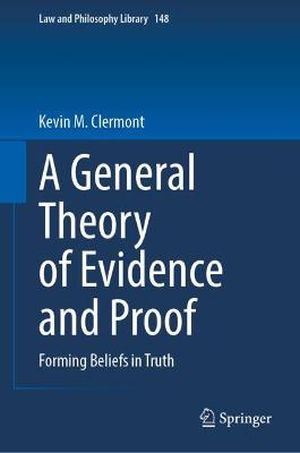
This book reframes the fundamentals of decisionmaking under uncertainty. For almost a century, theorists have spoken of truth-finding in terms of probability. They have said things like some past fact was 51% certain or proclaimed that in a civil dispute a fact must be shown to exceed a 50% likelihood. But such talk is a misleading misconception. The reason is that traditional probability fails to distinguish epistemic uncertainty from aleatory uncertainty. This conflation leads to mistakes such as invoking probability's product rules, which calculate a conjunction's likelihood as being low. From there, the theorists have argued that in a myriad of ways, the law violates the probability calculus unforgivably.
Today, other theorists are newly realizing that in large part the law does not deal in probability. They now can defend the way that law has found facts since long before the invention of probability and on to the present. They are also reevaluating such intuitive practices as those that humans use in daily life to combine inferences upon inferences. A hotly contested literature has emerged.
In a significant, comprehensive, and original contribution, this book develops a theoretical justification for the intuitive approaches that humans deploy across a broad range of decisionmaking. Instead of probability, the book focuses on degrees of belief that estimate, given the state of the evidence, how far a proposition has been fully proven. Instead of combining findings by the rules of probability, the book uses the rules of multivalent logic. The aim is to illuminate decisionmaking outside statistical analysis, showing that our ancient wisdom is in fact theoretically solid. The target is everyone interested in improving decisionmaking.